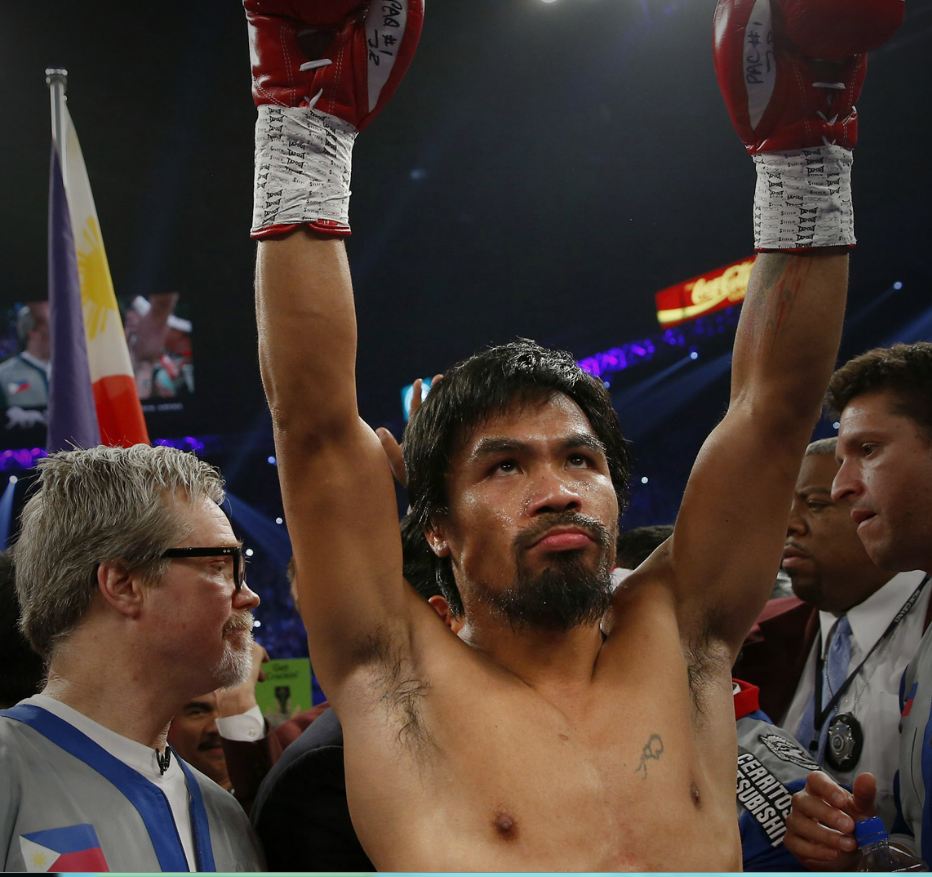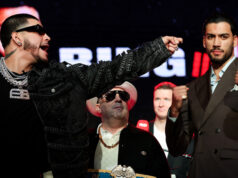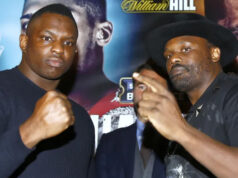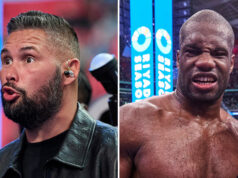Until his KO loss to Juan Manuel Marquez, and to a lesser extent, the controversial loss to Timothy Bradley, Manny Pacquiao had been seen as an unstoppable force during his reign through the weight classes. Everybody who ever saw Pacquiao fight knows that he is an all-time great fighter and accomplished amazing things throughout his career.
That being said, in the aftermath of his knockout loss, it’s worth wondering… was Manny Pacquiao as good as advertised, and did he really improve that much as his career progressed, or was matchmaking a big reason for his success?
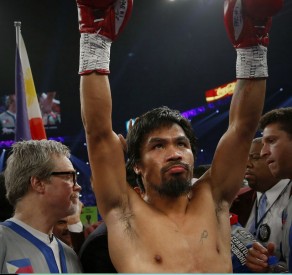
Let’s begin at the moment when Pacquiao absolutely destroyed Marco Antonio Barrera. This is when Pacquiao really became known to the fans. He showed his signature speed, power and relentless style, all of which was too much for Barrera.
Then came Marquez, who would become Pacquiao’s worst nightmare. After getting knocked down 3 times in the first round, Marquez came back and out-boxed Pacquiao for most of the fight. The fight ended in a draw. Pacquiao then fought Morales, who was fresh off a loss to Barrera, and dropped a decision in a slug-fest. This would be Pacquiao’s last loss until his two recent setbacks.
Pacquiao fought Morales on two more occasions, and stopped him both times. He also fought Marquez for the second time, scoring a close, and disputed, victory.
Other than Marquez at this point, nobody else really seemed to stand a chance against him. Did Pacquiao suddenly get better? Did he fix his weaknesses? Or was he matched up against opponents that couldn’t expose his weaknesses in the first place? Is Pacquiao a rare fighter that actually fights better against larger opponents, and the type of fighter who made huge leaps in technical improvement relatively late in his career?
Let’s look into it a bit more. We tend to forget that Morales was already fading by the first fight with Pacquiao. By the second fight, Pacquiao beat a Morales who just got shut out by Zahir Raheem, and was in a firm downward career slide.
Marquez showed the world that Pacquiao had trouble with fighters who were quick and could counter. After that, Pacquiao consistently steered well clear of the likes of the Zahir Raheem’s of the world, but more tellingly, fighters such as Joan Guzman who were shining in those weight classes at that time, and hey, maybe it was a good thing he never fought Mayweather?
Against bigger fighters, Pacquiao could move in and out at will and he managed to bring up his speed and power to every weight class that he moved to. That is the unique thing about Pacquiao. Most fighters lose those things as they move up in weight, but not Pacquiao.
After three years of dominating bigger fighters, he fights Marquez for a third time. Pacquiao is a heavy favorite because of how much he has “improved” during those years and because Marquez was on the “decline.” But again, Marquez showed that Pacquiao’s weakness was still there. He still couldn’t get past Marquez cleanly, and while the record shows another win, most fans agree Marquez had the edge.
Looking at a few of his other big wins, Oscar De La Hoya and Miguel Cotto, each time his opponent was forced to make a catch-weight. Cotto and De La Hoya were both clearly drained, and De La Hoya was worlds past his best.
So again, I ask, was Pacquiao really so unstoppable for those years as we all thought, or did he just fight those that couldn’t bring out his weaknesses?
Pacquiao garnered a reputation as the “Mexican killer” for all of his wins over Mexican fighters. Mexican fighters, by and large, are action-oriented and are ready to go to war. That’s great, but it’s also the style which is tailor-made for Pacquiao. How many slick African-American fighters in their prime did Pacquiao face?
This isn’t to say that Pacquiao isn’t still an all-time great, but it’s to show how unique Pacquiao is in this sense. Against larger fighters who should have been able to wear him down, he continued to shine. He carried his speed and power up through the ranks, and captured a huge range of titles, defeating Hall of Famers at many stops along the way.
Still, one wonders what his historical standing would look like if there were a different collection of names on his resume.


